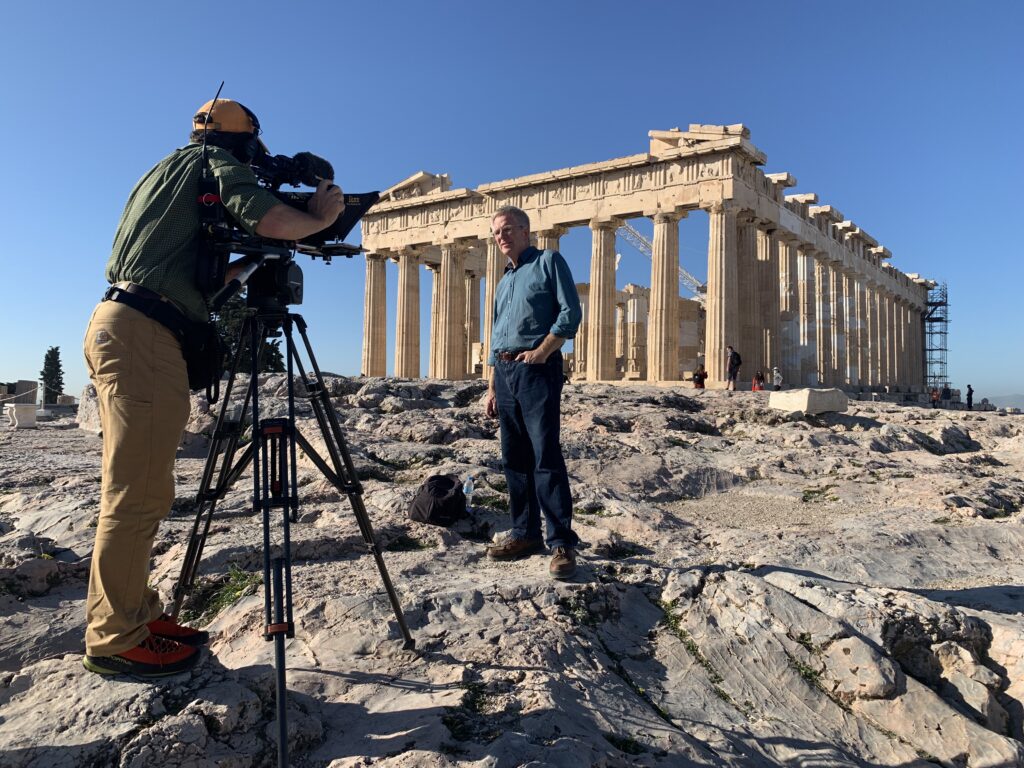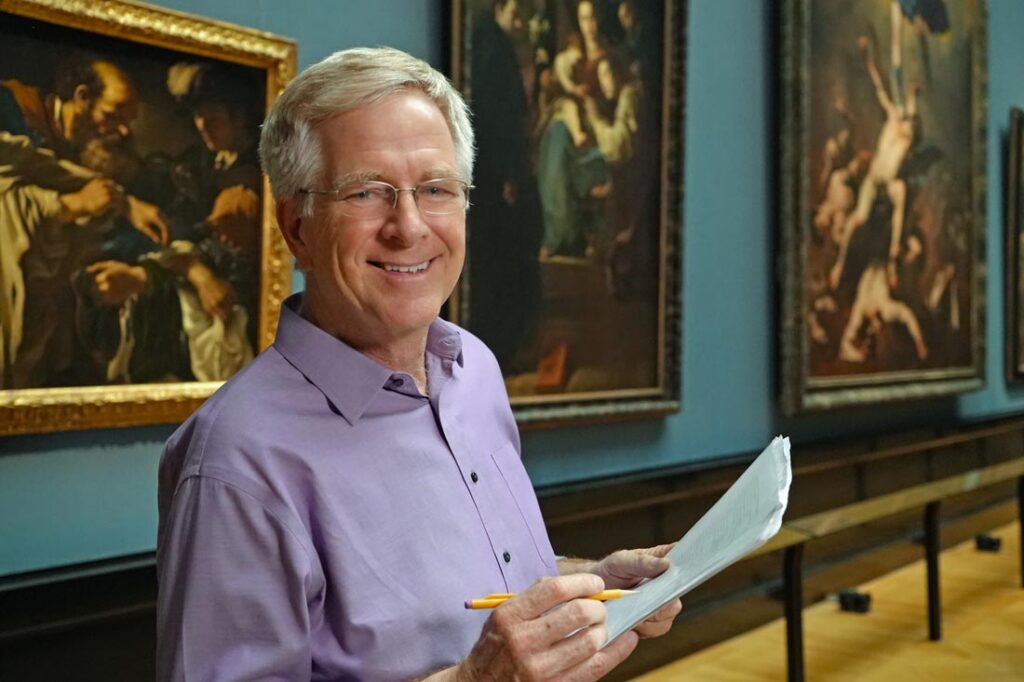If you want to plan a trip to Europe, then Rick Steves is your go-to guide. There’s no shortage of ways to learn about his travel tips—from guidebooks to television shows to podcasts… well, you get the idea.
Who is Rick Steves?
Even though Steves is now the expert on European travel with a multimillion dollar company, he didn’t start out in the travel business.
“I was a piano teacher,” he says. His piano students weren’t interested in taking lessons during the summer, so he decided to use that time to go to Europe. “I was just traveling, making mistakes and then [becoming] aware of other people who were making the same mistakes that I made.”
Steves wanted to help people have successful vacations, so he began using the piano recital room as a makeshift lecture hall, inviting everyone he knew who was interested in learning more about travel to attend. “They could learn from my mistakes and have a better trip, and I would have a good excuse to go back to Europe and update my material,” he explains. “I started realizing that people really want this information about travel.”
He eventually reached a crossroads. “‘Am I going to be a teacher or am I going to be a travel writer?’” he recalls asking himself. “I think I made the right choice to be a travel writer, as much as I miss my piano teaching.”
From Rick Steves’ books to TV series
Steves’ first step was creating a book using the material from his lectures. “That was my first book—Europe Through The Back Door—in 1980,” he says. “I bought 2,000 copies for about $2,000 and sold them on the back of my car.” The book—which Steves originally self-published—is still in print and currently in its 40th edition.
In the late ’80s, Steves was approached to do a television show for public television, which he filmed for 10 years before starting his own production company.
This past October, Steves launched season 12 of his TV show, Rick Steves’ Europe, with a focus on European art. “For 20 years, I’ve dreamed of having an art [television] show,” he says. “And now we have this new six-hour series about European art.”

This sentiment is core to Steves’ mission. “I really believe passionately in the value of travel,” he says. “I just know that, for me, to make more money and buy more things is not going to make me happier. Our mission as a company is to equip and inspire Americans to venture beyond Orlando.”
In this digital age, many guidebooks and travel publishers have gone out of business. Steves’ travel guide sales are still going strong, and he believes that’s due to his core belief of helping others have a successful trip.
“We are sort of old fashioned in our quality standards for updating our guidebooks and our material. You know, nobody else is out there trying to visit every place and every book for every edition, but we are [doing that] in person,” he says. Steves’ team spends hundreds of days a year researching locations to keep each edition of every guidebook up-to-date.
Steves believes travel can broaden our minds—culturally and politically
When Steves isn’t working, he’s trying to make changes through advocacy groups that focus on three big goals: solving world hunger, reversing climate change and legalizing marijuana. His work with these groups is a direct result of his travel experiences. “You learn a lot about your home when you leave it and look at it from a distance. That’s one of the beauties of travel,” he says. “I can see that we’re all struggling with many of the same challenges. And I can learn from a different society and a different culture, how they’re dealing with it.”

He believes culture shock should be a traveler’s goal. “Culture shock is constructive. It’s growing pains to have a broadening perspective,” he says.
He learned this himself with Europe’s recreational use of marijuana. “The Dutch and Portuguese stopped arresting pot smokers a long time ago,” he says, explaining that in most parts of Europe, a joint is about as exciting as a can of beer. Europeans smoke less marijuana per capita than in the United States, where, in many states, citizens can serve considerable jail time, he adds.
This discrepancy bewilders Steves, who notes that a poor person or a person of color can end up in jail or have a lifetime record with mild drug use. “In Europe, they’re not as quick to legislate morality as we are here in the United States,” he says. “Europe’s approach to these kinds of problems is called pragmatic harm reduction.”
Rick Steves’ tours fly carbon-neutral, too
Climate change is another issue that is important to Steves, who imposed a carbon tax on his own company.
“I’m trying to set an example as an ethical business person in the travel industry,” he explains. “I believe in mitigation science: that if you spend $30 smartly, you mitigate the amount of carbon you create by flying from the United States to Europe and back.” In other words, every year, 30,000 people fly to Europe for a Rick Steves tour. He “taxes” his company $30 per person, rounds up and then donates that money to a variety of climate-smart nonprofits. Last year, those donations totaled one million dollars.
If you’re looking to break into the travel business, Steves suggests you find your niche. “I’ve got Europe—that’s a pretty big beat. I’ve got a friend who just does Morocco.” He explains your goal should be to try to help people travel better in a place you know and love.
“And it’ll come back to you,” he says. “And pretty soon you’ll be the go-to person and be the ‘Rick Steves for Cuba,’ or whatever place that you specialize in.”
Photos courtesy of Rick Steves‘ Europe.



